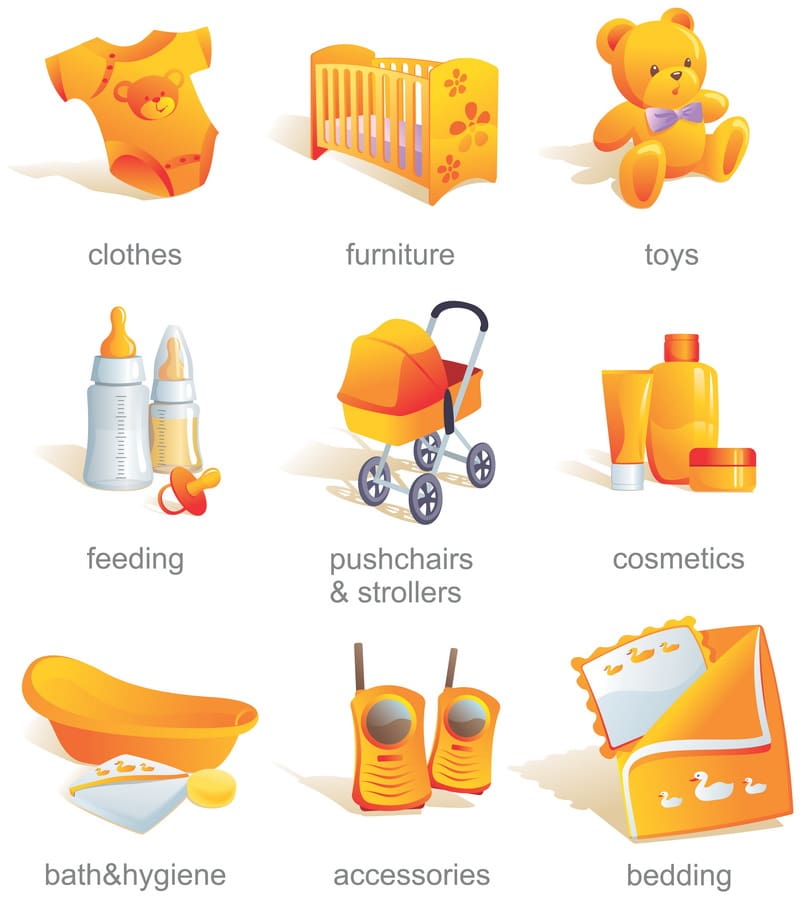Tips and advice for pregnant women who are planning to travel, including what to pack and what to avoid.
Traveling during pregnancy can be an exciting and memorable experience, but it’s important to take certain precautions to ensure your safety and well-being. Whether you’re embarking on a short weekend getaway or a long-distance journey, here are some dos and don’ts of pregnancy travel essentials that you should keep in mind.
First and foremost, it’s crucial to pack comfortable clothing that will accommodate your growing belly and keep you at ease throughout your trip. Opt for loose-fitting and breathable clothes that allow for easy movement and provide ample support. Remember, comfort is key when you’re expecting!
Staying hydrated is another essential aspect of pregnancy travel. Make sure to drink plenty of water, especially during long flights or car rides. Dehydration can lead to discomfort and potential health risks for both you and your baby. It’s always a good idea to carry a refillable water bottle with you and sip on water regularly.
When it comes to snacks, packing healthy options is a must. Nausea and hunger pangs can strike at any time during your journey, so it’s wise to have some nutritious snacks on hand. Consider packing items like granola bars, fresh fruits, nuts, or yogurt to keep your energy levels up and satisfy your cravings.
If you’re planning to travel for an extended period, you might want to consider wearing compression socks. These specialized socks can help prevent swelling and blood clots that can occur during long periods of sitting or standing. They work by improving blood circulation in your legs, reducing the risk of discomfort and potential health issues.
While it’s essential to pack all the necessary items for your trip, it’s equally important to avoid heavy luggage. Pregnant women should avoid straining themselves or putting unnecessary pressure on their bodies. Pack light and only bring essential items that you’ll actually need during your journey. Consider using a suitcase with wheels or a backpack for convenience.
Prior to your trip, take the time to research and locate nearby medical facilities at your destination. It’s always better to be prepared for any emergencies or unexpected health issues that may arise. Knowing where to go in case of any medical concerns will give you peace of mind and ensure prompt assistance if needed.
It’s crucial to check travel restrictions specific to pregnant women before finalizing your plans. Certain airlines have policies regarding pregnant passengers, and some destinations may have specific requirements or guidelines. Make sure to familiarize yourself with these restrictions to avoid any last-minute surprises or complications.
Lastly, before making any travel arrangements, consult with your healthcare provider. They can provide personalized advice and guidance based on your specific pregnancy and medical history. It’s especially important to seek their input if you have any complications or high-risk factors. Your healthcare provider will assess whether it is safe for you and your baby to travel, and they may offer additional tips and precautions to ensure a smooth journey.
By following these dos and don’ts of pregnancy travel essentials, you can enjoy a safe and comfortable trip while creating beautiful memories. Remember, your well-being and the well-being of your baby should always come first. Happy travels!
Pack Comfortable Clothing
Pack Comfortable Clothing
When it comes to traveling during pregnancy, comfort is key. Choosing the right clothing can make a world of difference in how you feel during your journey. Opt for loose-fitting and breathable clothes that will accommodate your growing belly and keep you comfortable throughout your trip.
Consider packing stretchy leggings, maxi dresses, or maternity jeans with an elastic waistband. These types of clothing will provide ample room for your belly to expand without feeling constricted. Avoid tight-fitting outfits or restrictive materials that may cause discomfort or restrict your movement.
Additionally, opt for breathable fabrics such as cotton or linen, which allow air to circulate and prevent you from feeling overheated. This is especially important if you are traveling to a warm destination or during the summer months.
Remember, your comfort should be a top priority during pregnancy travel. By choosing comfortable and accommodating clothing, you can ensure a more enjoyable and stress-free journey.
Stay Hydrated
When it comes to traveling during pregnancy, staying hydrated is crucial for your well-being and the health of your baby. It is important to drink plenty of water, especially during long flights or car rides. Dehydration can lead to discomfort and potential health risks, so it’s essential to keep yourself hydrated throughout your journey.
One way to ensure you stay hydrated is to carry a reusable water bottle with you. This way, you can easily refill it whenever needed and have access to water at all times. It’s recommended to drink water regularly, even if you don’t feel thirsty, as thirst can be a sign that you are already dehydrated.
During long flights or car rides, the air conditioning and lack of humidity can contribute to dehydration. To combat this, consider using a hydrating mist or spray for your face and body. This can help replenish moisture and keep your skin feeling refreshed.
In addition to water, you can also consume hydrating foods such as fruits and vegetables. These foods not only provide hydration but also essential nutrients for both you and your baby. Some hydrating options include watermelon, cucumbers, strawberries, and oranges.
Remember, staying hydrated is not only important for your comfort but also for the well-being of your baby. By drinking enough water and consuming hydrating foods, you can minimize the risk of dehydration and ensure a smooth and enjoyable journey.
Bring Snacks
Packing healthy snacks is essential for pregnant women who are planning to travel. These snacks not only help to keep your energy levels up but also prevent nausea or hunger pangs during your journey. When choosing snacks, opt for nutritious options that are easy to pack and consume on the go.
- Choose fruits like apples, bananas, or grapes that are rich in vitamins and fiber.
- Pack a handful of nuts or trail mix for a quick and filling snack.
- Consider bringing protein bars or granola bars to provide a boost of energy.
- Don’t forget to include some crackers or pretzels for a light and crunchy option.
Having these snacks readily available will help you avoid relying on unhealthy or processed food options that may be available during your journey. It’s important to prioritize your nutrition and maintain a balanced diet, even while traveling.
Consider Compression Socks
Consider Compression Socks
When it comes to pregnancy travel essentials, one item that should not be overlooked is compression socks. These specialized socks are designed to provide gentle pressure on your legs, helping to improve blood circulation and prevent swelling and blood clots that can occur during long periods of sitting or standing.
During pregnancy, your body undergoes numerous changes, and one of them is an increased risk of developing blood clots. This risk is further heightened during travel, especially on long flights or car rides where you may be sitting or standing for extended periods. Compression socks can be a lifesaver in such situations, as they work by applying pressure to your legs, helping to keep the blood flowing and reducing the risk of blood clots.
Not only do compression socks help with blood circulation, but they can also alleviate swelling in the legs and ankles, a common discomfort during pregnancy. The gentle compression can prevent the accumulation of fluid and reduce the likelihood of experiencing swollen feet and ankles after a long journey.
When choosing compression socks, opt for ones that are specifically designed for pregnant women. These socks are made with stretchy and breathable materials that can accommodate your growing belly while providing the necessary support for your legs. They are available in various compression levels, so it’s essential to consult with your healthcare provider to determine the right level of compression for you.
In addition to wearing compression socks, there are other measures you can take to further reduce the risk of swelling and blood clots during travel. Make sure to take regular breaks and stretch your legs, even if you are confined to a seat. Simple exercises like ankle rolls and calf raises can help keep the blood flowing. It’s also important to stay hydrated by drinking plenty of water and avoid crossing your legs, as this can impede circulation.
Remember, your comfort and well-being during travel are of utmost importance, and compression socks can play a significant role in ensuring a safe and pleasant journey. So, don’t forget to pack a pair of compression socks in your pregnancy travel essentials and give your legs the support they need.
Avoid Heavy Luggage
Packing light and only bringing essential items is crucial for pregnant women who are traveling. Carrying heavy luggage can put unnecessary strain on your body and increase the risk of discomfort or injury. It’s important to prioritize your comfort and well-being during your journey.
When deciding what to pack, consider the duration of your trip and the activities you’ll be engaging in. Opt for lightweight and versatile clothing that can be easily mixed and matched. Choose breathable fabrics that will keep you cool and comfortable.
Make a checklist of the essential items you’ll need during your trip. This will help you stay organized and avoid overpacking. Consider the climate of your destination and pack accordingly. Don’t forget to include any necessary medications or medical supplies.
If you’re traveling by air, check the airline’s baggage policies and restrictions. Some airlines may have weight limits or additional fees for overweight luggage. By packing light, you can avoid these extra costs and potential stress.
Consider using packing cubes or compression bags to maximize space in your suitcase. These organizing tools can help you fit more items without adding extra weight. Roll your clothes instead of folding them to save space and prevent wrinkles.
Remember, the goal is to travel comfortably and minimize physical strain. By avoiding heavy luggage and packing smartly, you can ensure a smoother and more enjoyable journey for yourself and your baby.
Research Medical Facilities
Researching and locating nearby medical facilities is an essential step before embarking on any travel during pregnancy. It is crucial to be prepared for any emergencies or unexpected health issues that may arise during your journey. By taking the time to research and identify medical facilities in your destination, you can have peace of mind knowing that help is readily available if needed.
Start by researching hospitals, clinics, and healthcare centers in the area you will be visiting. Look for facilities that have a good reputation and are equipped to handle pregnancy-related emergencies. It is also helpful to find out if these facilities accept your insurance or if you need to make alternative arrangements for payment.
In addition to hospitals and clinics, consider locating pharmacies and drugstores near your accommodation. This will ensure that you have easy access to any necessary medications or supplies during your stay. Having this information at hand can save you valuable time and reduce stress in case you need to purchase any items related to your pregnancy.
Make a list of the contact information for these medical facilities and keep it easily accessible during your trip. You can create a table or a list with the names, addresses, phone numbers, and any other relevant details for each facility. This way, you can quickly reach out for assistance if the need arises.
Remember, it is always better to be prepared than to be caught off guard when it comes to your health and the health of your baby. By researching and locating nearby medical facilities in advance, you can ensure a safe and worry-free travel experience during your pregnancy.
Check Travel Restrictions
When planning to travel during pregnancy, it is crucial to be aware of any travel restrictions or guidelines that may apply specifically to pregnant women. This includes being familiar with airline policies and destination requirements that could affect your travel plans.
Firstly, it is important to check with the airlines you will be flying with regarding their policies for pregnant passengers. Some airlines may have restrictions on the gestational age at which they allow pregnant women to fly. They may also require a medical certificate from your healthcare provider stating that it is safe for you to travel. It is essential to be aware of these requirements and plan your trip accordingly.
Additionally, different destinations may have specific guidelines or restrictions for pregnant travelers. Some countries may require certain vaccinations or have limitations on the activities you can participate in while pregnant. It is advisable to research and familiarize yourself with the rules and regulations of your destination to ensure a smooth and hassle-free trip.
In some cases, it may be necessary to obtain travel insurance that covers pregnancy-related issues or emergencies. This can provide peace of mind and financial protection in case of any unexpected complications during your trip.
By being proactive and checking travel restrictions and guidelines, you can ensure a safe and comfortable journey for both you and your baby. It is always better to be well-informed and prepared, allowing you to enjoy your travel experience while prioritizing your health and well-being.
Consult with Your Healthcare Provider
Before making any travel plans, it is crucial to consult with your healthcare provider to ensure the safety of both you and your baby. This step is especially important if you have any complications or high-risk factors associated with your pregnancy.
Your healthcare provider will have a comprehensive understanding of your medical history and can provide personalized advice based on your specific situation. They can assess any potential risks or concerns related to traveling and guide you on whether it is safe for you to embark on your journey.
During your consultation, be prepared to discuss the duration of your trip, mode of transportation, and any potential activities or destinations you have in mind. Your healthcare provider may have specific recommendations or precautions based on these factors.
They may also provide you with additional information or resources to ensure a safe and comfortable travel experience. This could include advice on managing any pregnancy symptoms that may arise during your trip or providing you with necessary documentation, such as medical records or a letter stating your due date.
Remember, every pregnancy is unique, and what may be safe for one woman may not be suitable for another. Your healthcare provider is the best person to provide you with personalized guidance and recommendations based on your individual circumstances.
By consulting with your healthcare provider, you can have peace of mind knowing that you are making informed decisions and taking the necessary precautions to protect both you and your baby while traveling.
Frequently Asked Questions
- Q: What type of clothing should I pack for my pregnancy travel?
- Q: How important is staying hydrated during pregnancy travel?
- Q: Should I bring snacks with me during my journey?
- Q: Are compression socks helpful for pregnant travelers?
- Q: How should I handle luggage during pregnancy travel?
- Q: What should I do in case of any medical emergencies during my trip?
- Q: Are there any travel restrictions for pregnant women?
- Q: Should I consult with my healthcare provider before planning any travel?
A: It is recommended to choose loose-fitting and breathable clothes that will accommodate your growing belly and keep you comfortable during your trip.
A: Staying hydrated is crucial during pregnancy travel. Make sure to drink plenty of water, especially during long flights or car rides, as dehydration can lead to discomfort and potential health risks for both you and your baby.
A: Yes, it is advisable to pack healthy snacks to keep your energy levels up and prevent nausea or hunger pangs while traveling.
A: Wearing compression socks can be beneficial as they help prevent swelling and blood clots that can occur during long periods of sitting or standing.
A: It is best to pack light and only bring essential items to avoid straining yourself or putting unnecessary pressure on your body.
A: Before traveling, research and locate nearby medical facilities in case of any emergencies or unexpected health issues. It’s always better to be prepared.
A: Yes, it’s important to be aware of any travel restrictions or guidelines specific to pregnant women, such as airline policies or destination requirements. Check with the airlines and destinations beforehand.
A: Absolutely! It is crucial to consult with your healthcare provider before making any travel plans, especially if you have any complications or high-risk factors. They can provide personalized advice and ensure it is safe for you and your baby to travel.











